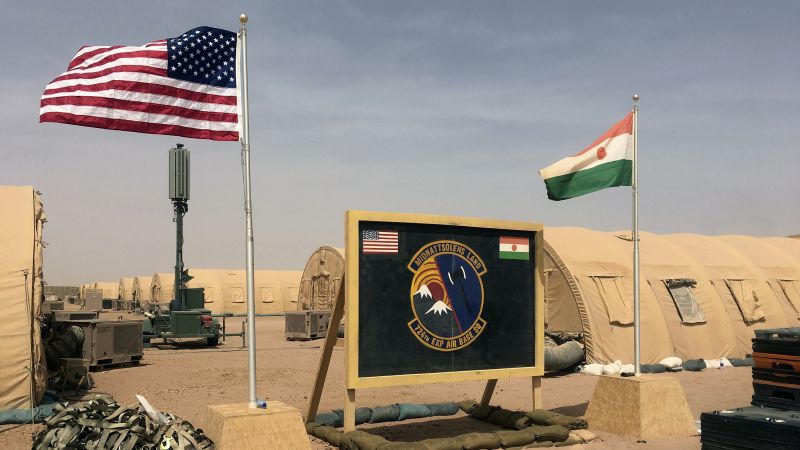The US has begun withdrawing military equipment and personnel from Niger following a months-long delay in obtaining approval from the ruling military junta for US military flights into the country. The withdrawal process, which comes ahead of a September 15 deadline agreed upon by both countries, prioritizes the removal of sensitive equipment from Niger. Flight tracking websites showed US C-17 cargo aircraft en route to Niamey, the capital of Niger, on Friday to withdraw military equipment and personnel from Base 101.
Last month, the US and Niger agreed on a four-month timeline for the withdrawal of American forces, including approximately 1,000 personnel and military equipment, from the West African nation. The US had been utilizing Niger as a central hub for surveillance of violent extremist groups in the region and for training Nigerien troops. However, the coup in Niger last July disrupted the training mission, leading to strained relations between the US and the military junta. Amid calls for free and fair elections, the military junta eventually called for the withdrawal of US forces, further complicated by the need to remove sensitive equipment and obtain flight clearances.
US personnel who left Niger before the withdrawal agreement had to take commercial flights out of the country. Meanwhile, as the US prepares to withdraw, Russian forces have moved in and are operating at the same base previously utilized by US forces. This proximity between US and Russian military forces in Niger has been a point of contention and raised concerns about the country’s military junta leaning towards the Kremlin. Russia has been actively seeking to expand its influence in the region, with recent actions in Burkina Faso and other African countries.
The head of US Africa Command, Gen. Michael Langley, warned Congress in early March about Russia’s aggressive efforts to expand its influence in Africa, placing several countries at risk of falling under Russian influence. Despite previous hopes of continued cooperation with Niger based on shared efforts to counter extremist groups in neighboring countries, US defense officials now express doubts about maintaining a meaningful relationship with the current Nigerien leadership. The expansion of Russian influence in the region has further diminished hopes for future cooperation with Niger.
Overall, the withdrawal of US forces from Niger, prompted by strained relations with the military junta and the increasing presence of Russian forces in the country, marks a significant shift in the region’s geopolitical landscape. As the US disengages, Russia’s influence continues to grow, raising concerns about the implications for security and stability in West Africa. The withdrawal process highlights the complex dynamics at play in the region and the evolving relationships between global powers and African nations like Niger.


